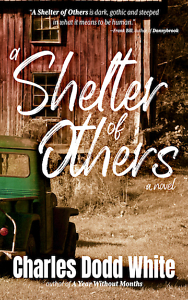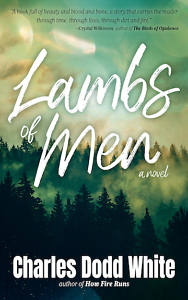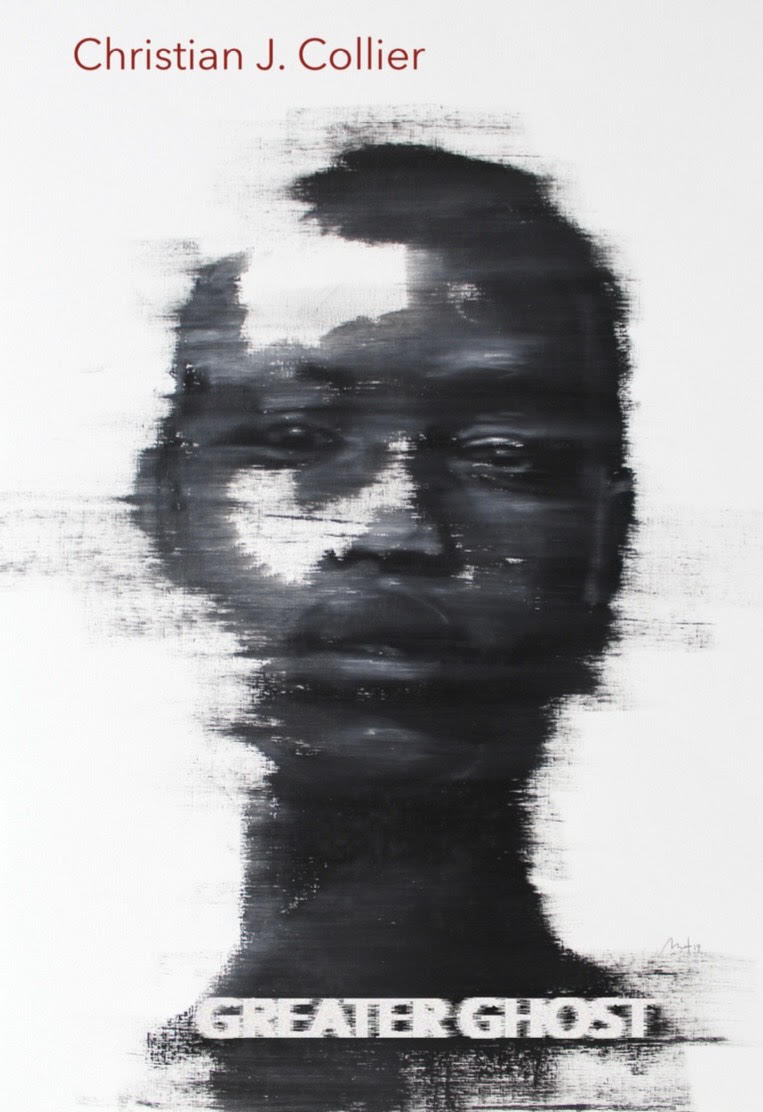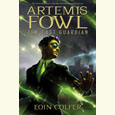Pursuing the Stranger Course
Novelist Charles Dodd White discusses a pivotal year in his life as a writer
During the past year, Knoxville writer Charles Dodd White has seen three books published — a feat that would be a high point for any writer’s career. First, his harrowing memoir-in-essays, A Year Without Months, arrived, giving readers a forthright yet graceful account of his survival amid several deaths by suicide among the men in his family, including his son.
 Later in the year, White’s first two novels were reissued by Shotgun Honey Books. Lambs of Men first established White’s voice and hallmark subject matter with its tale of a father and son in 1920s Appalachia who must confront more than one kind of wilderness as they grapple with the fallout of a terrible crime.
Later in the year, White’s first two novels were reissued by Shotgun Honey Books. Lambs of Men first established White’s voice and hallmark subject matter with its tale of a father and son in 1920s Appalachia who must confront more than one kind of wilderness as they grapple with the fallout of a terrible crime.
A Shelter of Others furthers that novel’s haunting, lyrical vision but tells a modern story, built around Mason Laws, a man filled with regret and trying to rebuild his life after a prison term. After taking a moment to contemplate the night sky above him, Mason “walked straight out of the old family place, pursuing the stranger course of what lay before him.”
White, too, is now contemplating the future of his writing life. But his body of work so far — which includes two other novels, How Fire Runs (2020) and In the House of Wilderness (2018), as well as an earlier story collection, Sinners of Sanction County (2010) — has contributed significantly to the tradition of Southern novels that prize intricate prose, suspenseful action, and confrontations with humankind’s darker impulses.
White answered questions for Chapter 16 via email.
Chapter 16: The past year seems like a major one for you — first, the appearance of your memoir and then during the fall, the reissuing of your first two novels. I’m wondering about this experience of seeing your first two books republished now, not so much as a matter of career, but rather as a writer. What has the process of revisiting these earlier works been like for you?
Charles Dodd White: I’ve been pleased to see these early books reissued and have a chance to be read by people who might have been introduced to my work at a later point in time. The main impression for me is seeing how much the sentence work has evolved. There’s a density of language, particularly in A Shelter of Others, that I was pleased to execute, but I’m pretty sure wouldn’t be best for the books I’ve written since then. There was a desire to push my style as far as it would go, and I think that can be rewarding particularly in such a brief novel, but with longer pieces, you need more room for the characters to take over, and that’s a mode I’m much more comfortable in now. I think it’s a common trajectory for so-called “stylists” to slough off the tricks and embellishments as they pursue a consistent vision. As far as that goes, I’m proud to see that there is a consistency of vision from those early works up to now. Namely, the consideration of the natural world and how people are subject to it.
Chapter 16: Early in Shelter, we enter the book’s Mountain South atmosphere in a passage that describes “the world of bluff, creek and gorge” as a place “without parallel,” where “the grim and the beautiful were locked together and that the men and women were owned by it in equal measure.” How has Appalachia worked as an influence on you and your work?
 White: I think my connection has been explicitly physical. By that I mean that it’s the places themselves, their geography, that have had the greatest impact. So often this means the mountain trails, clearings, and river valleys — places where I’ve hiked, paddled, and camped. There are also the urban spaces I’ve lived, Knoxville, Tennessee, and Asheville, North Carolina, especially. I didn’t live in Appalachia until I was 18, so my experience wasn’t someone steeped in regional culture. That doesn’t mean I haven’t learned about the history behind the places, but I’ve always been most interested in how particular one place can feel, and I think when we discuss this large area of Appalachia that we can overlook just how different each of its parts can be. In the last decade or so, it’s been very popular to identify as Appalachian, and at its worst, this can seem like a cynical maneuver to commodify the self and/or develop a personal brand. I’m not interested in or very good at that sort of thing.
White: I think my connection has been explicitly physical. By that I mean that it’s the places themselves, their geography, that have had the greatest impact. So often this means the mountain trails, clearings, and river valleys — places where I’ve hiked, paddled, and camped. There are also the urban spaces I’ve lived, Knoxville, Tennessee, and Asheville, North Carolina, especially. I didn’t live in Appalachia until I was 18, so my experience wasn’t someone steeped in regional culture. That doesn’t mean I haven’t learned about the history behind the places, but I’ve always been most interested in how particular one place can feel, and I think when we discuss this large area of Appalachia that we can overlook just how different each of its parts can be. In the last decade or so, it’s been very popular to identify as Appalachian, and at its worst, this can seem like a cynical maneuver to commodify the self and/or develop a personal brand. I’m not interested in or very good at that sort of thing.
Chapter 16: I’m specifically interested in these paired elements of “the grim and the beautiful,” which exist in a tension that reverberates throughout every work of yours I’ve read. How do you see the darker, more violent elements of your work in relationship to the presence of beauty?
White: The grim and beautiful are often two sides of the same consideration. I think this is largely a question of how fiction has the capacity to reimagine its subject. Even revolting circumstances and characters can take on a new light when they appear in a story. The magic trick of fiction is that it can contain what it portrays so that it can reach toward the sublime, lending it an air of significance that it might not otherwise have. This is significant because so much of the commonly experienced ugliness of suffering can seem petty and trivializing. I like to think that when a story takes on such a subject, it has the ability to elevate it to the level of tragedy rather than resign itself to abjection. I suppose that’s kind of a classical, old-fashioned way to look at storytelling, but it is a guiding principle for me.
Chapter 16: Nature figures so prominently in your characters’ lives. Whether in fiction or nonfiction, the people you depict often seem to share a porous sense of intimacy with the natural world. How did this way of conveying nature-enmeshed consciousness come about in your work?
White: I spent a lot of time as a boy in the woods, mostly hunting. Because I was out there for long periods of time by myself, I developed an interest in observing details. I think a lot of who I am now was really formed by that experience. Solitude and the outdoors are an excellent way to train a writer’s ability to see the world as it manifests itself uniquely to them. There’s a section in Mark Twain’s Life on the Mississippi where he talks about how he learned to read complicated books the same way he learned to read complicated currents as a river pilot. That seems to be pretty close to my own experience of how those two disparate experiences actually touch on one another.
 Chapter 16: Your memoir-in-essays, A Year Without Months, is such a powerful expression of difficult experiences. You’ve described the book as a “grief memoir,” emphasizing the importance of working through the grief enough before writing this kind of work. Now that the book has been out for a while, has anything surprised you about the experience of sharing this kind of personal material with readers?
Chapter 16: Your memoir-in-essays, A Year Without Months, is such a powerful expression of difficult experiences. You’ve described the book as a “grief memoir,” emphasizing the importance of working through the grief enough before writing this kind of work. Now that the book has been out for a while, has anything surprised you about the experience of sharing this kind of personal material with readers?
White: I think it’s been different than previous promotion tours in a couple of significant ways. One of the more ironic things about reading events is that I feel the need to prepare the audience for how upsetting the subject matter will be. Essentially, something along the lines of, “Well, folks, these are my experiences and they might be a bit much for you to take.” Certain things can be read in the privacy of one’s thoughts in a way that doesn’t necessarily lend itself to a public reading.
Another thing that I’ve heard from readers in a related way is that they have bought the book but are putting off reading it until they feel like they can deal with the emotions it might provoke. Probably the most significant thing, though, was when a woman who had recently lost her only child approached me at a book signing. I think she mainly just wanted to talk about what she was going through, feel like she had somebody in front of her who could speak the same language, which I was happy to do. If there’s anyone this book is written for, it’s people like her.
Chapter 16: Do you think that having spent such concentrated work on memoir will shift your perspective or approach to crafting fiction?
White: I think it already has. A Year Without Months felt like the conclusion of a chapter in my career. So much so, I’ve floundered a bit in terms of deciding how to move forward. One of the things that has always been in the back of my mind is how to break into a bigger readership, and I’ve recently come to terms with that likely never happening. Instead, I’m finding satisfaction in pursuing stories for their own sake, which means they might not neatly fit into a readily identifiable genre. I’ve begun writing short stories again, and these draw more from my experiences of travel and middle age than my earlier work. I guess I’m writing a lot more of what I call “living room” fiction, along the lines of writers I admire like John Williams and Evan S. Connell. There was a recent profile of Connell in The New Yorker that referred to him as having mastered minor writing, and while some might view that as a dubious compliment, I get the allure of pursuing that kind of career.
In terms of novel writing, I’m also working in a direction I never anticipated, which is an interest in the lives of people in government, like politicians and diplomats. I’m interested in how ideology and personality shape global affairs. I think I just want to continue finding new things to love about writing and seek challenges that will change who I am as an artist and a person.

Emily Choate is the fiction editor of Peauxdunque Review and holds an M.F.A. from Sarah Lawrence College. Her fiction and essays have appeared in Mississippi Review, storySouth, Shenandoah, The Florida Review, Rappahannock Review, Atticus Review, Tupelo Quarterly, and elsewhere. She lives near Nashville, where she’s working on a novel.





